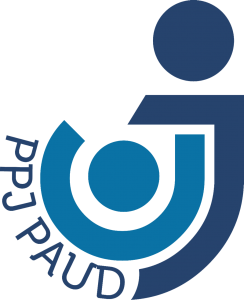Family support for young Ḥāfiẓ Al-Qur’ān
DOI:
https://doi.org/10.26555/jecce.v5i1.5974Keywords:
Children Hafiz-e-Quran, Islamic Boarding School, Remove Family SupportAbstract
No children can develop without the support of the family. Family support is one of the contributing factors to children's success. This study aims to illustrate family support for young Ḥāfiẓ al-Qur’ān . This research is descriptive qualitative research. The research subjects are five children, Ḥāfiẓ al-Qur’ān since they were seven years old, their teachers, and their parents. Data collection was done through interviews and observation, followed by an analysis using the interactive model by Miles, Huberman, and Saldana. The research findings show that family support for young Ḥāfiẓ al-Qur’ān includes emotional support, appreciation, instrumental support, information, and spiritual support. Future studies should focus on the parents' spiritual support for children's success, as it requires more theoretical studies. This research is expected to inspire and motivate parents to accompany their children, especially in memorizing the Qur'an.
References
Ahmed-Mohamed, K., Fernandes-Mayoralas, G., Rojo-Perez, F., Forjaz, M. J., & Martin, P. M. (2013). Perceived Social Support of Older Adults in Spain. Applied Research in Quality of Life, 8(2). https://doi.org/https://doi.org/10.1007/s11482-012-9184-8
Barna, G. (2003). Transforming Children Into Spiritual Champions: Why Children Should Be Your Church#1 priority. Gospel Light Publications.
Bronfenbrenner, U. (2005). Making Human Beings Human: Bioecological Perspectives on Human Development. Sage Publications Ltd.
Canavan, Dolan, & Pinkerton. (2000). Family Support in Ireland: Developing Strategic Implementation. Child Care in Practice, 9(4), 309–321. https://doi.org/https://doi.org/10.1080/1357527032000169063
Canfield, C. F., Edelson, L. R., & Saudino, K. J. (2017). Genetic and Environmental Links Between Natural Language Use and Cognitive Ability in Toddlers. Child Development, 88(2), 573–83. https://doi.org/https://doi.org/10.1111/cdev.12604
Caprara, G. V., Di Giunta, L., Eisenberg, N., Gerbino, M., Pastorelli, C., & Tramontano, C. (2008). Assessing Regulatory Emotional Self-Efficacy in Three Countries. Psychological Assessment, 20(3), 227–237. https://doi.org/https://doi.org/10.1037/1040-3590.20.3.227
Chernow, F. B. (1997). The Sharper Mind. Prentice Hall Press.
Dolan, P., Zegarac, N., & Arsic, J. (2021). Family Support as a right of the child. Social Work & Social Sciences Review, 2, 8–26.
Edward. (2013). Family Engagement in Education and Intervention: Implementation and Evaluation to Maximize Family, School, and Student Outcomes. Journal of School Psychology, 62. https://doi.org/https://doi.org/10.1016/j.jsp.2017.04.002
Ehsan, N., Nauman, H., & Tahir, H. (2017). Parental Acceptance-Rejection, Self Esteem and Self Control Among Street Children. FWU Journal of Social Sciences, Winter 2017, 11(2), 149–159.
Garbacz, S. A., Herman, K., Thompson, A. M., & Reinke, W. M. (2017). Family Engagement in Education and Intervention: Implementation and Evaluation to Maximize Family, School, and Student Outcomes. Journal of School Psychology, 62. https://doi.org/https://doi.org/10.1016/j.jsp.2017.04.002
García, V. T., Fernández, B. G., & Ruiz-Gallardo, J. R. (2018). Home-Based Family Involvement and Academic Achievement: A Case Study in Primary Education. Educational Studies, 44(3), 361–375. https://doi.org/https://doi.org/10.1080/03055698.2017.1373636
Ibrahim, M. A., Shah, A. S. M., & Mohd, R. A. (2017). Concept of Shifa' In Al-Quran: Islamic Medicine Approach in Healing Physical Disorder. Al-Qanatir International Journal of Islamic Studies, 6(2).
Keeling, S. (2003). Advising the Millennial Generation. NACADA Journal, 23(2), 30–36.
Knudsen, E. (2004). Sensitive Periods in The Development of The Brain and Behavior. Journal of Cognitive Neuroscience, 16(8), 1412–1425. https://doi.org/https://doi.org/10.1162/0898929042304796
Laily, N., & Muhid, A. (2021). Social Support as Predictors Work Stress on Early Childhood Education Teacher. Journal of Early Childhood Care and Education, 4(2), 54–62. https://doi.org/https://doi.org/10.26555/jecce.v4i2.4007
Milberg, A., Liljeroos, M., Wahlberg, R., & Krever, B. (2020). Sense of Support within The Family: A Cross-sectional Study of Family Members in Palliative Home Care. BMC Palliative Care, 19(120). https://doi.org/https://doi.org/10.1186/s12904-020-00623-z
Miles, M. ., Huberman, A. M., & Saldana, J. (2014). Qualitative Data Analysis, A. Methods Sourcebook, Edition 3. Sage Publications Ltd.
Pekrun, Goetz, Titz, & Perry. (2002). Academic Emotions in Students’ Self-Regulated Learning and Achievement: A Program of Qualitative and Quantitative Research. Educational Psychologist, 37(2), 91–105. https://doi.org/https://doi.org/10.1207/S15326985EP3702_4
Saleem, S., Mahmood, Z., & Subhan, S. (2015). Perceived Parental Practices and Mental Health Problems : Cross-Cultural Validation of EMBU-C on Pakistani Adolescents. Journal of Social Science, 9(1), 44–52.
Sarafino, E. P., & Smith, T. W. (2010). Health Psychology: Biopsychosocial Interactions, Seventh Edition. John Wiley & Sons, Inc.
Smeth, B. (1994). Psikologi Kesehatan. PT. Gramedia Widiasarna Indonesia.
Subarkah, M. ., & Resyanta, E. M. (2021). Pengaruh Dukungan Sosial Keluarga terhadap Psychological Adjustment pada Warga Binaan Asimilasi di Balai Pemasyarakatan Kelas II Pati. Journal of Correctional Issues, 4(2), 132–145.
Thomas, P. ., Liu, H., & Umberson, D. (2017). Family Relationships and Well-Being. The Gerontological of Society America. Innovation in Aging, 1(3), 1–11. https://doi.org/https://doi.org/10.1093/geroni/igx025
Wilde, S. (2013). Care in Education: Teaching With Understanding and Compassion (Vol. 88). Routledge.
Downloads
Published
How to Cite
Issue
Section
License
Copyright (c) 2022 Muthmainah, Abur Hamdi Usman

This work is licensed under a Creative Commons Attribution-ShareAlike 4.0 International License.
Authors who publish with this journal agree to the following terms:
- Authors retain copyright and grant the journal right of first publication with the work simultaneously licensed under a Creative Commons Attribution-ShareAlike 4.0 International License that allows others to share the work with an acknowledgement of the works authorship and initial publication in this journal.
- Authors are able to enter into separate, additional contractual arrangements for the non-exclusive distribution of the journals published version of the work (e.g., post it to an institutional repository or publish it in a book), with an acknowledgement of its initial publication in this journal.
- Authors are permitted and encouraged to post their work online (e.g., in institutional repositories or on their website) prior to and during the submission process, as it can lead to productive exchanges, as well as earlier and greater citation of published work (See The Effect of Open Access).














